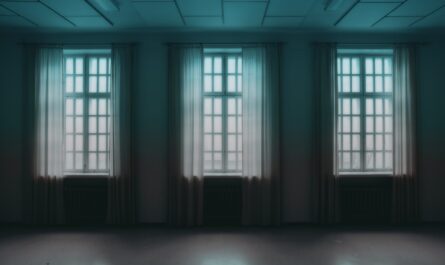“The new media and technologies by which we amplify and extend ourselves constitute huge collective surgery carried out on the social body with complete disregard for antiseptics.”
– Marshall McLuhan, Understanding Media: The Extensions of Man
From the outset, the anticipation of a month off sounds like a lot of time. I am prone to overestimating what I’l do in a month, especially since the point of the month was to rest and not work. “Oh, I could do this project and read all about this and maybe I’ll do these three other things, too.” To minimize that line of thought, I looked at August as four sabbatical weeks which happened to be successive, rather than an open month of time to fill up with things. The Sabbatical weeks are weeks without obligation and the only rule is not scheduling anything for that time, ahead of time. The only real goal I had for this month off was to make a plan as to how I wanted to approach writing for the remainder of the year, and I managed to do that in one day of reading and brainstorming. The rest of the month I spent away from the computer as much as possible, once I realized I particularly enjoyed being not online for hours at a time.
This was made abundantly clear one night, as it occurred to me I was enjoying my evening by reading without even trying. Typically, it’s more of a decision to not turn on the television and read instead. Despite the fact it was the end of the night, I was still able to think clearly without that draining brain fog I typically get in the evenings or sometimes even in the afternoons. Instead, I had retained my ability to think clearly for an entire day of reading and studying. This was worth taking note of! Why was an evening reading magazines a fulfilling use of time in this instance, but other nights it seems impossible to concentrate on a paragraph? I realized the difference was spending the entire day reading analog sources instead of using screens. Indeed, as I played back the events of the day and the previous one, I realized I had not been on the computer at all for three days!
I’ve known for a while that being online – whether that’s on my phone or computer – more than two hours in a day makes my brain sort of “manic”, where I end up looking for constant novelty and stimulation (the collective Internet) instead of reaching for something engrossing and of decent quality (reading material). We know from texts like Cal Newport’s Digital Minimalism and Johann Hari’s Stolen Focus that the context shifting students and office workers experience daily (often the result of interruptions from message pings or notifications) tends to result in feeling more worn out, a diminished ability to pay attention, and finishing fewer items – or taking longer to finish what used to be simpler. Judging from my admittedly subjective experience, though, it would seem the medium of the screen itself plays a role in attention and, going further, perhaps reading on the screen requires more energy than reading paper, thus resulting in feeling more exhausted reading a chapter on a screen versus the same chapter in print? That is a question I plan to explore in my research on reading this autumn.
More generally, I did keep my daily morning and evening routines the same – I got up and did my morning journaling and reading, I continued to workout, and my evening routine remained in place – but the bulk of the day was a bit different. Instead of getting into my office and starting the day’s writing, I started most days at the kitchen table, reading whichever book or essay had caught my attention. Some days, I spent most of the day there; others I only read a couple hours before taking a break to do something else. All of them were wonderful because I just followed where my attention led. Some days I wrote several thousand words, others I simply wrote my bare minimum of one thousand. Some days I even wrote by hand in my journal instead of on the computer. So long as I was thinking and writing, I didn’t put too much emphasis on where the writing was done. After a summer of travel and missing days here and there, I just wanted to get back into the daily habit of putting words down on a page in succession, maintaining and exploring a thought. I also kept my weekly habit of reviewing the week each Friday. I find making the habit of looking back and reflecting a weekly occurrence to be helpful – otherwise I’d probably only do it a few times of year and not have a good grasp on what I was actually accomplishing on the shorter side of things.
Which leads into another habit which was reinforced over this month; the importance of having a wind down routine at night. Even when I haven’t done anything particularly interesting, turning off screens an hour before bed and going through the process of reading for a few minutes, then getting ready for bed, stretching, and perhaps reading a bit more; all of that really helped me stay on track with sleep, even on days I knew I didn’t have to get up early to finish anything necessarily.
Perhaps the least expected part of this time off was the checking and reassurance I had not, in fact, forgotten something important. I found myself having to remind myself that I was not “supposed” to be doing anything, that nothing was due, and that, no, I was not forgetting to do anything. Being able to mentally relax takes more than five days. By my estimate, it takes closer to two weeks just to get into a mental space where you aren’t constantly interrupting yourself with questions or concerns about work. So, that would make two weeks the minimum viable amount of time off for a mentally-present vacation. What a joke time off in the States is, speaking from the experience of “earning” one week off per year. The European average of four weeks seems to be more in line with how humans actually function.
In the middle of the month, I noticed my outlook on errands and chores had switched over from dread and procrastination to “Why not now?”. This shift resulted in usually having most of the day’s goals done earlier than usual and often in much less time than anticipate, which really worked out nicely. It almost became a game to see how little time I could spend on a task getting it done. It turns out things take much less time if you just do them instead of putting them off and and thinking about them all day. Who knew?!
By end of this month off, I appreciated not having any obligations on my time throughout the day. Most days, I just sat down and read without aim and had a great time. Paradoxically, if you want to consistently push ahead, you must let yourself recover. By the end of the month, I felt mentally refreshed and ready to dive into researching some burning questions. I left the month feeling rested, with a plan in hand, and lots of questions I want to dig further into. It was a great reminder that we need more rest from our obligations and devices than we even realize.
Image: Winding The Mantle Clock, Alfred Stevens. Circa 1875-1880. Belgian, 1817 – 1875.




